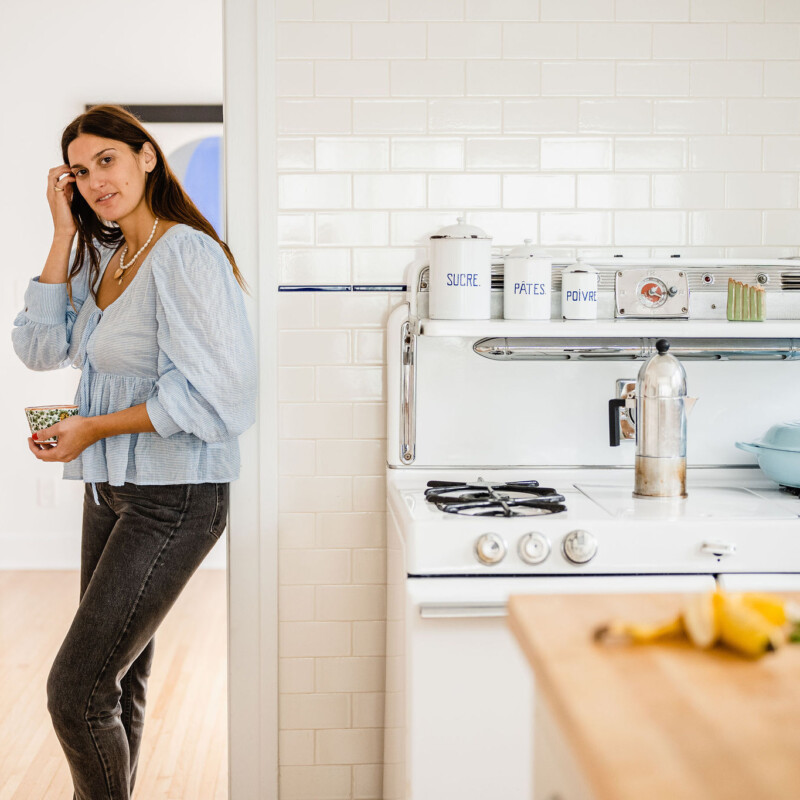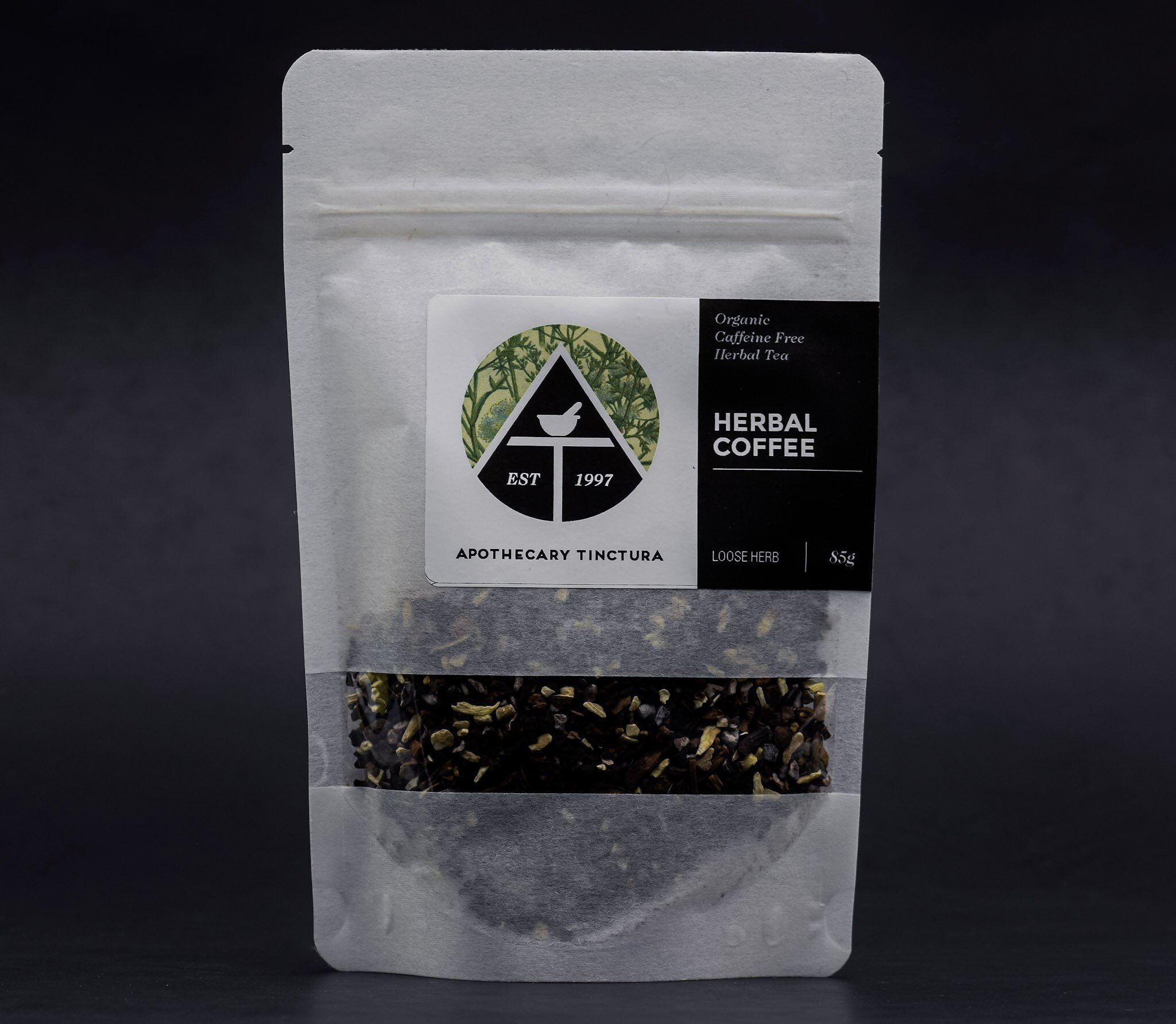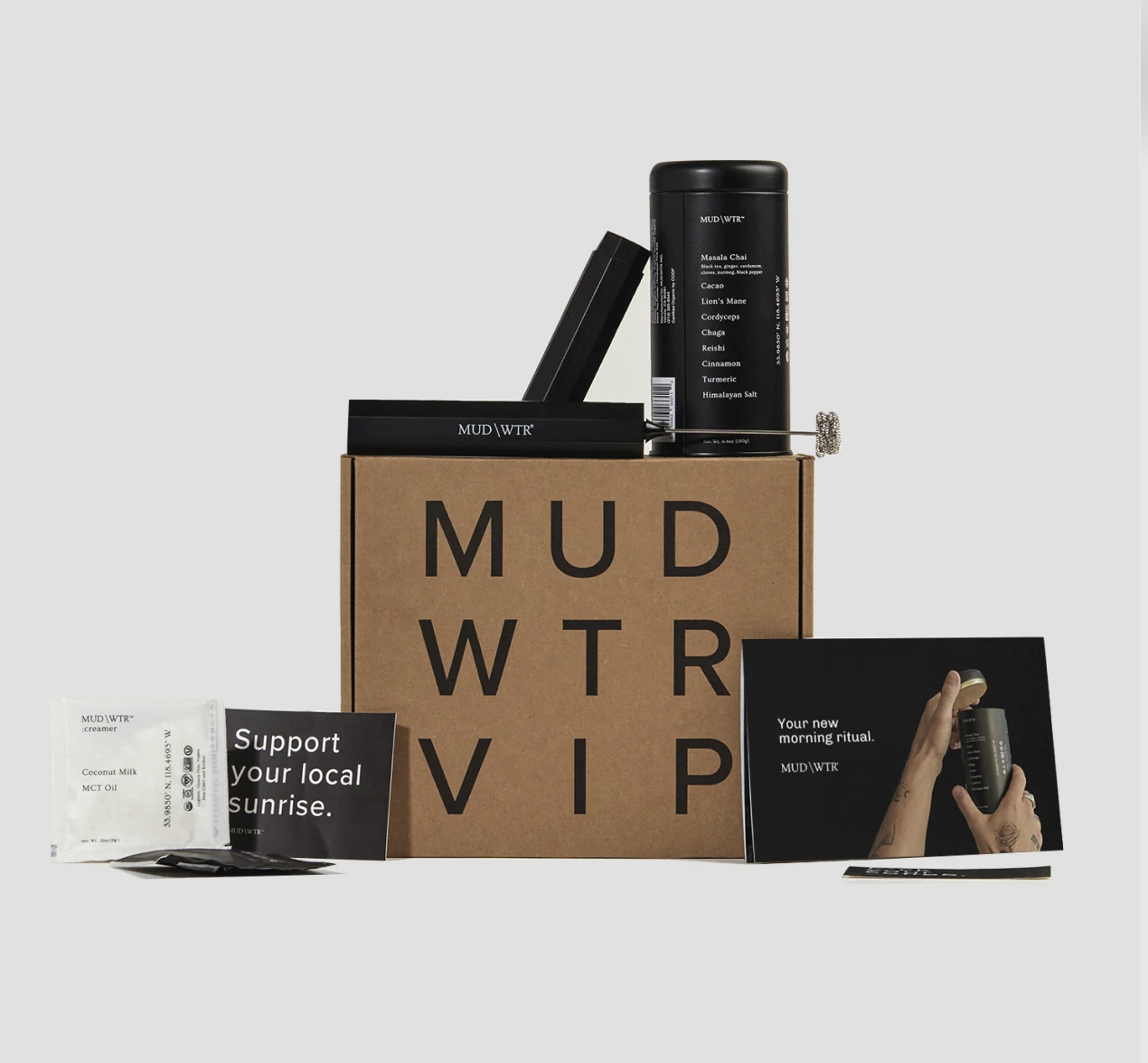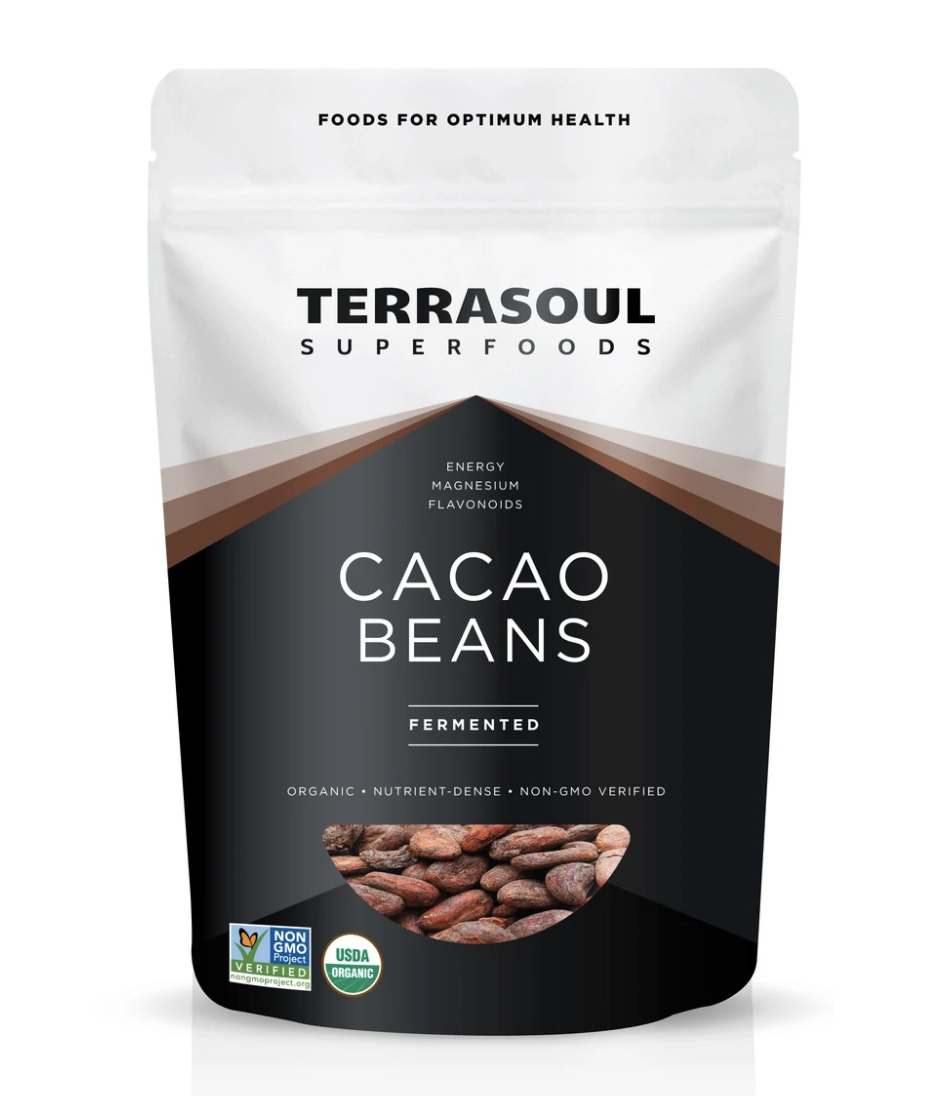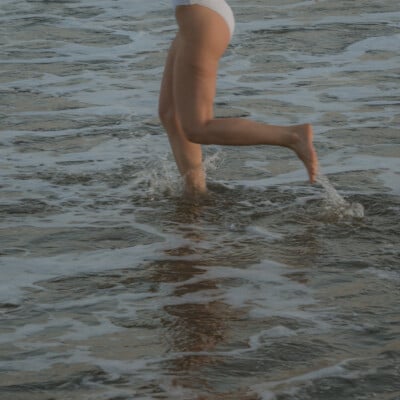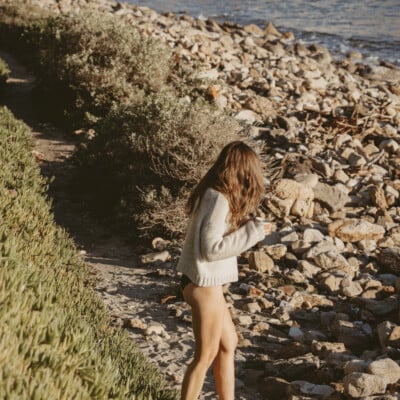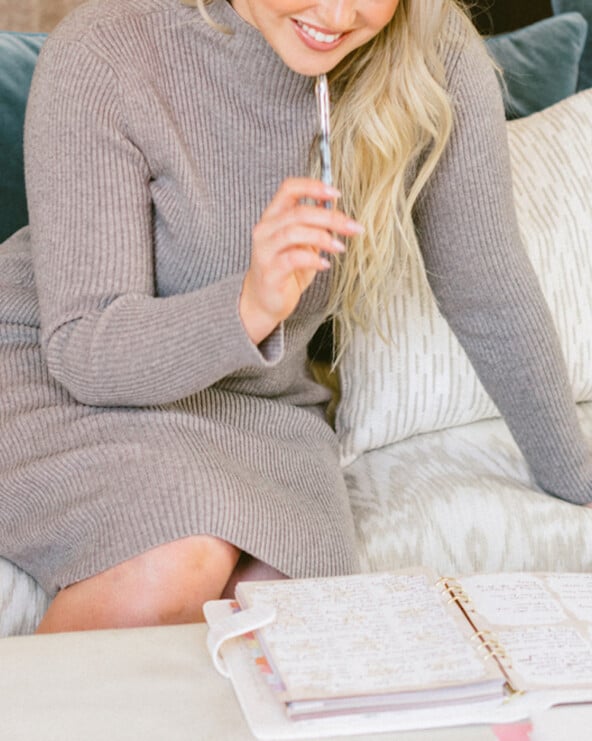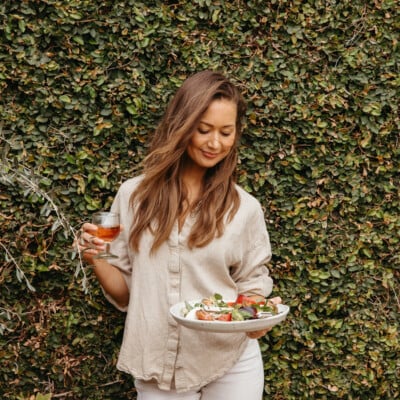There is perhaps no beverage more omnipresent across the world than coffee. The American Psychological Association reports that up to 80% of American adults consume coffee daily (Starbucks really nailed that market, eh?) Through countries and cultures, come morning, afternoon, or post-dinner, the smell of roasted coffee beans brewing will find its way to your nose in most parts of the world. An offering of hospitality, a treat, a tool, provider or warmth, sanity, and a morning standard, coffee in many forms is a very normal part of life for most of us. Despite the fact that the vast majority of consumers don’t think twice before downing a hot cup o’ joe, those who suffer from anxiety or social anxiety may want to think twice before hitting brew on that 12-cup pot. Say what? Can caffeine cause anxiety?
The simple answer to “can caffeine cause anxiety” is yes and if this is you, even moderating our caffeine intake may have a profound impact on our overall calmness and how we navigate the world around us. While caffeine is so very readily accessible and accepted in our world, it is in fact, a mind-altering substance. So, let’s talk about what exactly caffeine does to your brain, and let me give you some food for thought on the matter of mud. Cutting back just a bit or stopping caffeine altogether could be life-changing for you.

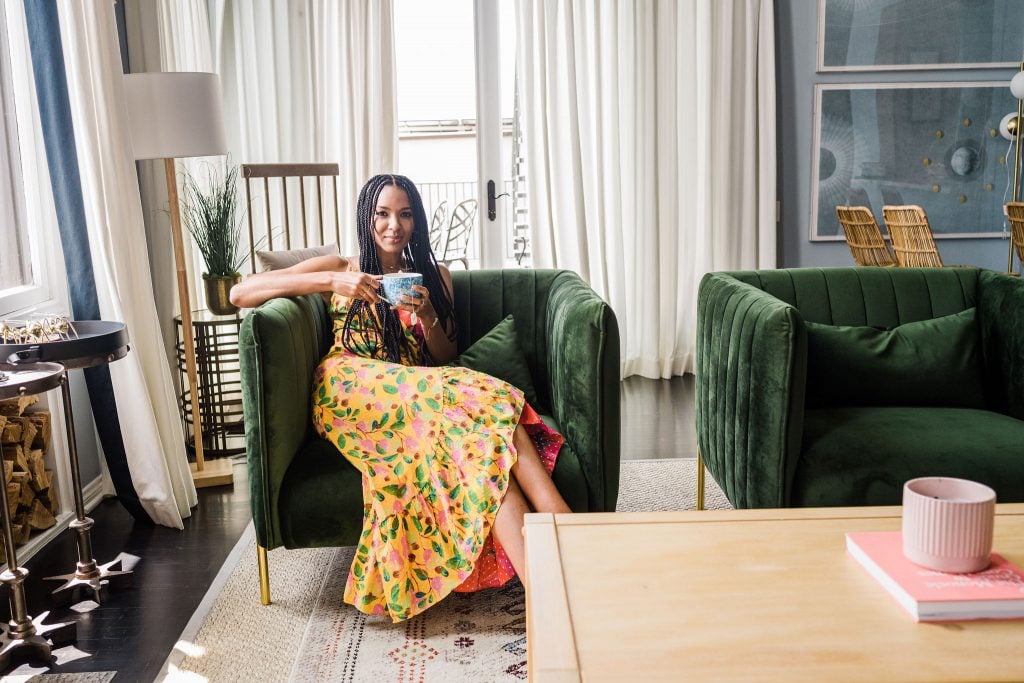
Jiving or Jittery?
In a 2013 review of published medical literature on coffee, researchers noted that while more robust and well-controlled research is definitely needed there are certainly some well-documented health benefits to drinking three to four cups of coffee a day (400 mg of caffeine). Regular consumption of coffee decreases a person’s overall risk for disease in life, also known as all-cause mortality. It also decreases the risk of cardiovascular disease, coronary heart disease, and stroke. Additionally, those who drink coffee regularly have a lower incidence of a multitude of cancers throughout their lifetime. Regular coffee consumption has also proven to be positive in lowering our risk for diabetes and Parkinson’s disease. Yes, yes, and yes!
Now that you’ve read about some of the pretty convincing health benefits of java, I’d love to dig into the nuanced reality that while it isn’t generally bad for most of us (along with being very socially accepted), slamming coffee or drinking more than a small amount per day, really doesn’t work for everyone. Furthermore, it might “not be working” for many people who have anxiety but don’t associate caffeine as a trigger.
Newer research in the New England Journal of Medicine reports that no more than moderate amounts of caffeine (four to five cups per day or less) is the sweet spot between getting too much coffee to do harm and just enough to reap some of the health benefits.
However, for the many people who are sensitive to outside stimulants, even drinking small amounts can cause mental health side effects such as anxiety and panic attacks. Anxiety and panic are two of the most common mental health disorders in the US, hence the potential for overlap and exacerbation of anxiety with daily caffeine use is high. Additionally, many of us over-consume caffeine or consume all day without ever living “uncaffeinated,” making it difficult to fully understand the true cause of anxiety. This connection between anxiety and caffeine is so common that there is actually a medical diagnosis named caffeine-induced anxiety disorder.
So what is anxiety exactly? Anxiety is defined as an emotion characterized by feelings of tension, worried thoughts as well as physical changes such as:
- Increased blood pressure
- Digestive upset
- Headache
- Insomnia
- Shortness of breath
- Increased heart rate
- Sweating
- Muscle tension
Harvard Medical School reports that using caffeine can cause symptoms identical to anxiety in many people such as:
- Nervousness
- Gastrointestinal upset
- Trouble sleeping
- Restlessness
- Fast heart rate
Catch the similarities? If you’re already living with the symptoms in list A, why consume a substance that in theory should be aiding you, when in reality it causes a double down of your symptoms and can make anxiety worse?

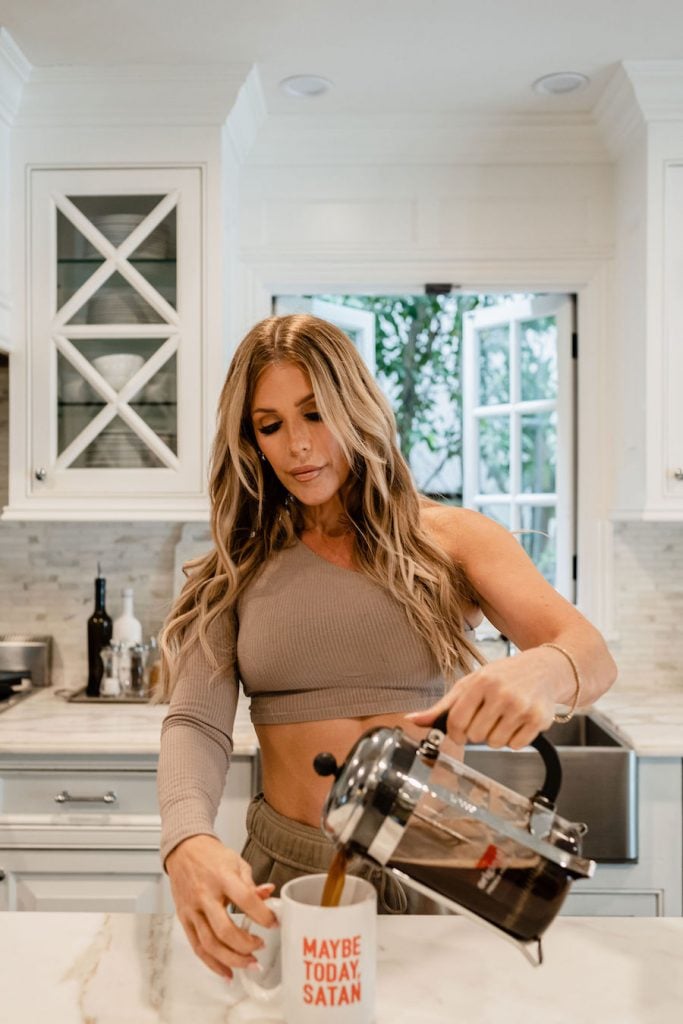
How does this all shake out in the brain?
How does caffeine even work? Caffeine works in your brain by blocking adenosine, which is a brain chemical that helps us feel tired and relaxed. Systematically while blocking adenosine, caffeine triggers stimulating hormones (two of which are responsible for the “fight or flight” response), adrenaline, and dopamine. These hormones normally cause feelings of well-being, alertness, and focus. This is great after a long night of poor sleep with a cranky wakeful baby in your arms, or just to start the day. However, if you tend to relate to the descriptors: high-strung, anxious, or busy-minded, the activation of these brain chemicals can be an all too familiar stimulant, and really get your anxiety pumping by compounding on symptoms you may already be prone to.
Mindfully take note of what works for you
It’s a great idea if you suffer from anxiety and drink coffee to pay attention to when your anxiety is triggered. Do you chug coffee in the A.M. and then notice a wave of anxiety hit you as pull into work? It may be as simple as slowing down and thinking about your intake. With caffeine being such a commonplace beverage in our lives we sometimes don’t realize just how very much we are consuming or forget to pay attention to this as a possible trigger.
I recommend tracking the amount of caffeine you drink daily for a few days. Do you know how many milligrams you ingest? When we are comfortable in our ways, we behave less mindfully, especially with food and beverage choices. As a rule of thumb, there is typically about 100 mg of caffeine per cup of coffee depending on how strong you brew it, if you know you brew a strong cup, aim for a higher estimate. In general, drinking more than 400 mg a day is not recommended, and for sensitive individuals as little as 50-100 mg per serving could cause anxiety, especially on an empty stomach. There is a great list of caffeine content in common beverages from this healthline article that I’ve included below for your reference.
Below are ranges of caffeine contents in popular beverages:
- 8 ounces of decaf coffee contains 3–12 mg
- 8 ounces of plain black coffee contains 102–200 mg
- 8 ounces of espresso contains 240–720 mg
- 8 ounces of black tea contains 25–110 mg
- 8 ounces of green tea contains 30–50 mg
- 8 ounces of yerba mate contains 65–130 mg
- 12 ounces of soda contains 37–55 mg
- 12 ounces of energy drinks contain 107–120 mg

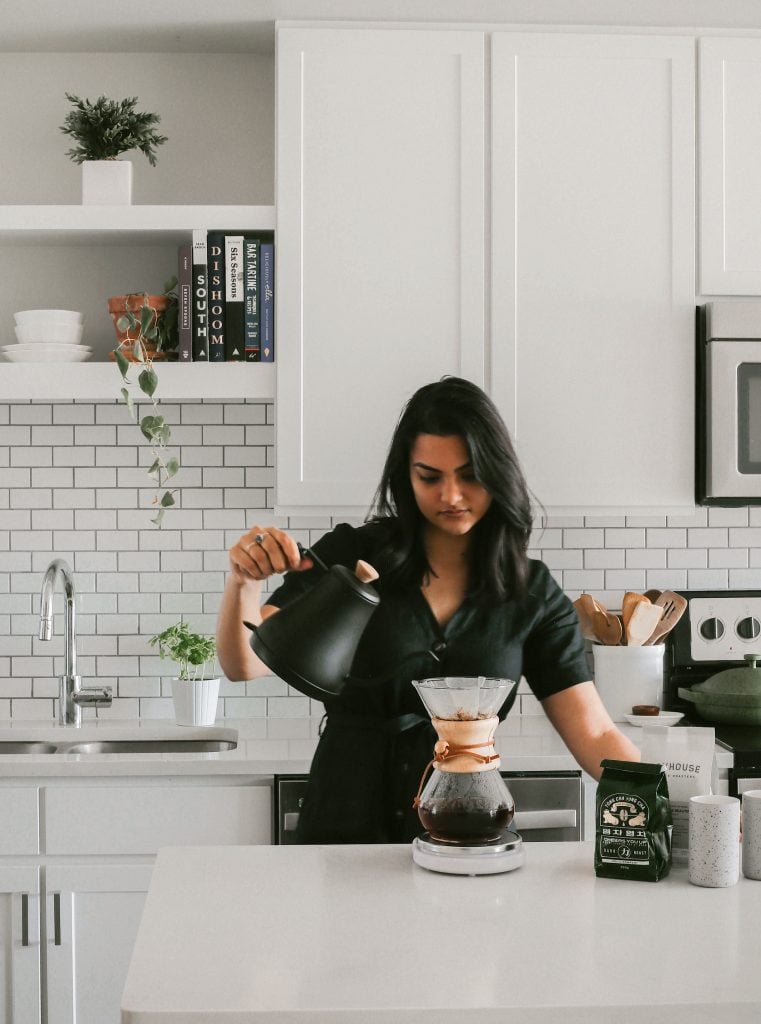
Okay, I’m overcaffeinated and anxious: now what?
If you’ve overdone your caffeine for the day try this:
- Stop drinking caffeine
- Drink water with electrolytes
- Go for a walk
- Try eating food that will take time to digest and help slow the release of caffeine into your bloodstream
- whole grains, beans, lentils, starchy vegetables, nuts, and seeds are good options
Next: let’s make a plan for cutting back in the future. Consider weaning down over a period of a few weeks. Slowly start drinking less and less caffeine and pay close attention to how you feel. If you begin to get headaches, fatigue, or irritability you may be cutting down too quickly in your weaning schedule. On the flip side, these withdrawal symptoms are temporary, so it may be worth it to tough it out for a week or so if your anxiety is really out of control. Perhaps you will find that you still enjoy the stimulation, taste, and focus that just a ½ cup or one cup of coffee gives you! My whole life personally changed when I scaled down to ½ cup per day rather than 4-6 cups over the entire day.

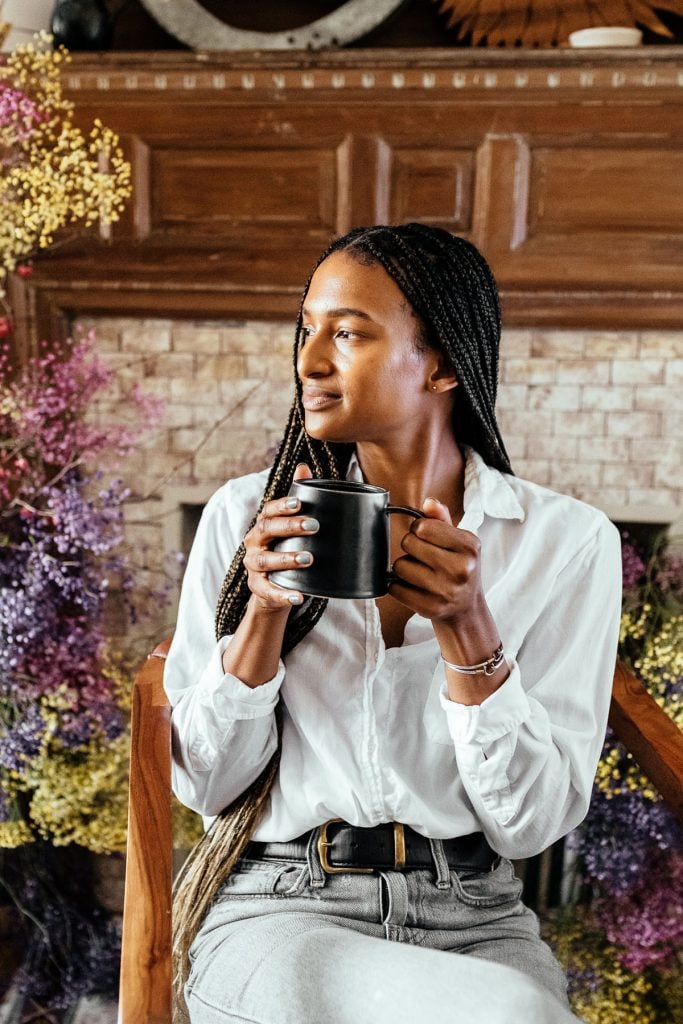
3 Great Coffee Alternatives
If you’re cutting back on coffee altogether and curious about replacing your morning cup with something that’s equally warm, delicious, and scratches the coffee itch, I have a few recommendations for you.
Apothecary Tinctura Herbal Coffee
My all-time favorite sub is from a little apothecary in Denver, Colorado. It’s an amazing herbal blend that somehow feels warm, slightly bitter, sweet, and satisfies me every time I want “coffee” but don’t want to feel like a ball of nerves. It’s a mix of roasted chicory root, roasted dandelion root, cacao, ashwagandha, and cinnamon chips. Ashwagandha is a favorite adaptogenic herb that helps you feel calm and focused. The perfect switch!
MUD/WTR Morning Ritual Starter Kit
While I haven’t tried MUD/WTR I have heard good things! This non-coffee coffee is made with mushrooms and herbs and just 1/7th of the amount of caffeine of normal coffee. The brew boasts focus and alertness without all of the jittery side effects.
Terrasoul Superfoods Cacao Beans (Unpeeled)
Brewed cacao, oh my, yum! Not to be confused with cocoa, if you love chocolatey flavors and want to try something you can brew similarly to coffee that feels rich, tasty, and comforting as well as having stimulating side effects, consider brewed cacao. Cacao is also full of antioxidants so is actually good for you, rather than dehydrating and jittery. I’m loving this article on the benefits if you want to learn more.
Looking for more options? Here are a few coffee alternatives that will give you a boost without the crash.

